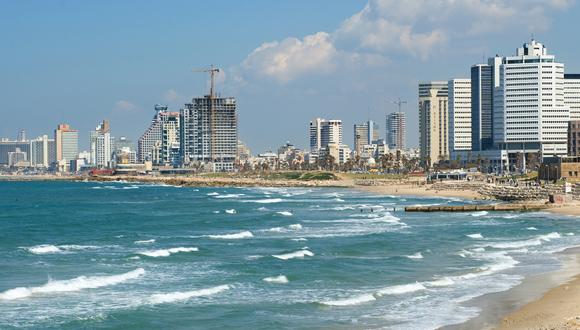Mediterranean Sea Studies: New TAU-Ruppin Center
Tel Aviv University is joining up with the Ruppin Academic Center to establish a new, multidisciplinary, Center for Mediterranean Sea Studies.
The surprising discovery of major gas fields off the coast of Israel generated hope for greater energy independence, but it also highlighted the country’s lack of petroleum-related experts that could guide the efficient and environmentally responsible exploitation of this energy wealth.
Now, in a move aimed at producing trained experts together with broader academic knowledge, Tel Aviv University is joining up with the Ruppin Academic Center to establish a new Center for Mediterranean Sea Studies. The multidisciplinary center will integrate 50 marine biologists, geophysicists and engineers at both institutions, together with colleagues in Israel and abroad, to research the Mediterranean Sea. Beyond gas and oil exploration, the scientists will study a wide spectrum of Mediterranean Sea-related issues that greatly affect Israel’s economy and ecology, including desalination, fisheries, wave and wind energy, and tourism. Leading the new center will be Prof. Yonathan Zohar, former director of the Center of Marine Biotechnology at the University of Maryland at Baltimore.
The Mediterranean Sea: A Sustaining Ecosystem Over the Ages
The Mediterranean Sea is an intercontinental body of seawater surrounded by Europe, Africa, and Asia, hence the name Mediterranean, coined by the Romans and meaning sea in the middle of the earth. It consists of several maritime systems all connected yet distinct in their oceanographic and biological characteristics. As the birthplace of ancient human civilizations and modern Western culture, the Mediterranean Sea has wielded major influence on humanity. Over the ages it has provided a conduit for trade, colonization, and war, and has proffered the basis of life through fisheries. Bordered by 21 countries, it is one of the most popular tourist destinations in the world, owing to its unique landscape, beautiful beaches, and mild climate.
In recent decades, however, anthropogenic activities resulting in pollution, acidification of the sea and rising temperature and sea levels, invasions of alien species, depletion of fisheries’ stocks, and declining biodiversity have shaken the stability and health of this marine ecosystem and present a colossal threat to populations depending on the sea. A broader scientific knowledge base and deeper regional understanding must be developed through collaborative basic and translational research and teaching, in order to guide us in reversing deleterious processes and sustainably harvesting crucial resources, while restoring and preserving the ecosystem and biodiversity of the sea in the middle of the earth. Locally, Israel’s 200-kilometer-long coastline stretches along the Mediterranean Sea. Its shores are home to over 70% of Israel’s population. As such, the Mediterranean Sea affects every aspect of life in Israel, from climate and environmental quality through energy, food, and drinking water resources to trade, economy, and national security.






